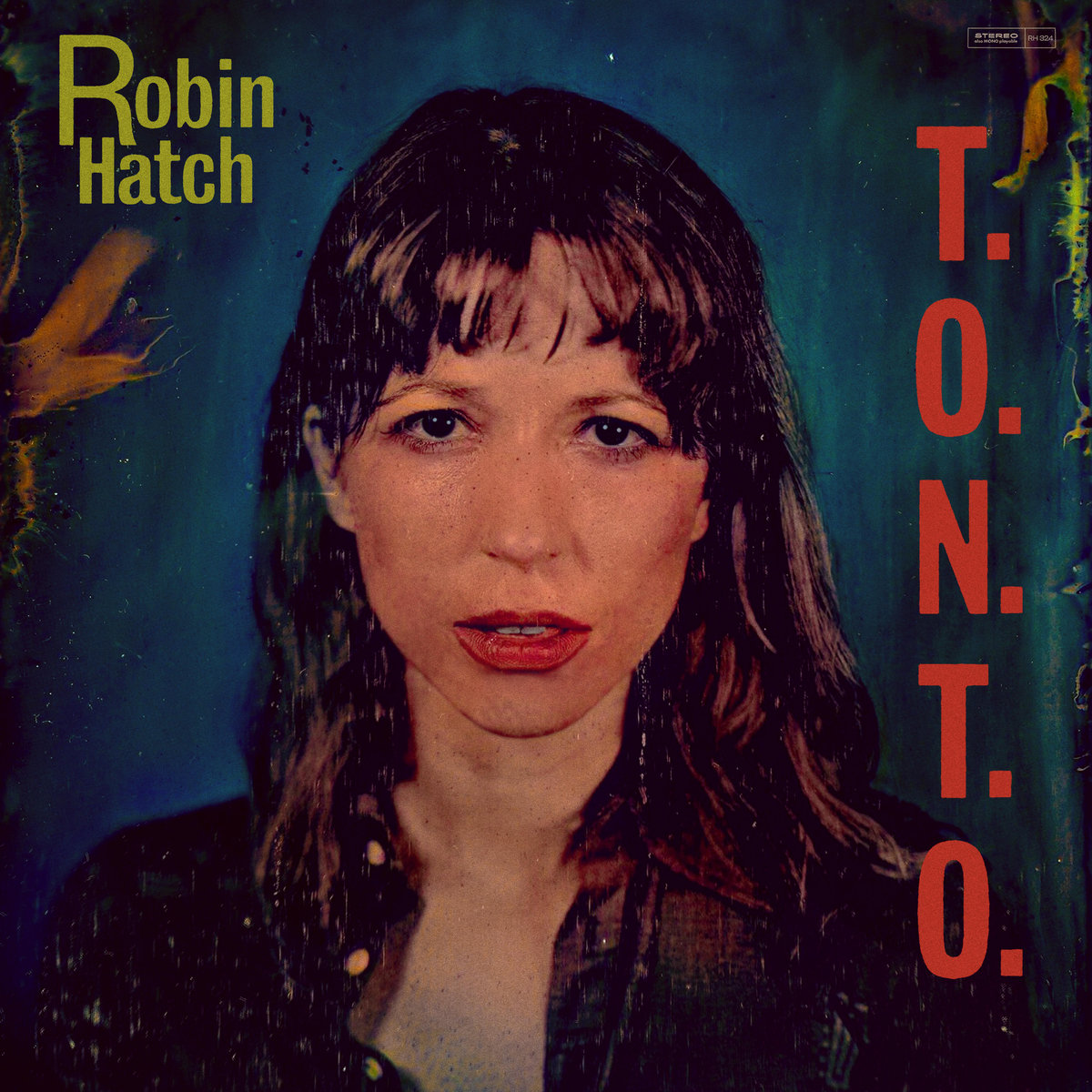You might not be able to identify it off hand, but chances are you have heard TONTO before – and that’s no surprising considering it’s the world’s largest analog synthesizer. Created by producers Malcolm Cecil and Robert Margouleff in 1968, the mammoth machine (consisting of a 20-foot semicircle of wooden cabinets with parts from Moog, ARP, Oberheim, EMS, Roland, Serge, Yamaha, and more, all fused together with Boeing 747 airplane wire), snuck into the spotlight behind some big names like Stevie Wonder, DEVO, and Gil-Scott Heron. Any synth aficionado would care for a chance to tinker around with it, but since TONTO lives in the National Music Centre in Calgary, Alberta, opportunities to play it are few and far between.
Toronto-based composer and multi-instrumentalist Robin Hatch is one of the few lucky enough to be afforded such an opportunity. Allowed just four days to record, Hatch was forced to go about her creation process a little differently; after writing the majority of the album before being faced with the machine, she had little time to fine tune the perfect sound and capture the ideal takes – which is all the harder considering the seemingly infinite opportunities and sound possibilities TONTO offers. After recording, bringing in a collection of contemporary musicians to add instrumental voices to her tracks, and a lengthy mastering process with one of TONTO’s co-creators (Robert Margouleff, who added 60 hours of work to Hatch’s timetable, asking her to re-tune her synth parts “by sense”), the final result is T.O.N.T.O., an ode to a colossal machine that is near-impossible to master.
T.O.N.T.O., the album, is a strange beast, one that seems never entirely tamed, but also eerily tranquil at points. What comes off like an alien world at first (where notes never quite fall into the expected place, nor instruments sound quite like they obviously should) makes more sense with consideration. When Lowell Whitty’s drums and the synth arpeggios on “The Inspector” lock into place, the groove is dynamic and sharp. On top of this, though, a sense of frustration seems to emanate from Hatch trying to find a riff that matches the streamlined surroundings. Likewise “Rest Stop” lacks that spark amidst the pulsating lifeblood of synths and the welcome hiccuping percussive lilts. It’s easy to picture Hatch at the controls of TONTO playing with determination to find that golden moment.
But equally, the point of T.O.N.T.O. isn’t to produce a series of flashy, zippy synth tracks that are out to catch your ear. With her compositions here Hatch looks to exorcise ingrained burdens, transforming the likes of psychosis, post-traumatic stress, delusion, and hallucinating voices into electronic soundscapes for listeners to sit in and confront. In that regard, T.O.N.T.O. does a copasetic job, even if the results don’t always make for seamless and traditionally enjoyable experiences. Hatch’s worlds here are always interesting, and full of some vibrancy.
“Airplane” (which features some swishing violin from Völur violinist Laura Bates) is a ride above the clouds, but also always on the edge of plummeting descent with the gloopy synths that sound a touch menacing and like an alarm is going off somewhere in the back of your head. “The Standoff” sees Hatch pitted in a synth duel against Joseph Shabason, and while both players seem in sync (and evoke just a hint of Ennio Morricone), the track does come to something of a standstill after a while. “Mockingbird” fares better, Islands figurehead Nick Thorburn bringing some welcome finishing touches and both wooden and metallic textures to the mix of ethereal synth choirs; on paper it sounds messy but the track is surprisingly unfussy, and even manages to sparkle at points.
Sometimes the tracks bleed into one another like ink spots running into each other, and sometimes the collaborators’ contributions are nigh impossible to notice (Laura Bates’ violin sounds so synth-like you can easily mistake it for another artificial layer on first glance). Again, it’s not necessarily a bad thing. The majority of T.O.N.T.O. drifts in exploratory territory that’s equal parts free-form (“My Lucid Mind”, “Brazil”) and oddly nostalgic (“Rest Stop”, “Inspector”, and “The Standoff” will definitely evoke memories of 16-bit video games for anyone who owned the likes of a Sega Mega Drive or Genesis).
It’s hard to discredit the hours of hard work that went into T.O.N.T.O. too, especially since it came to life under the watchful eye of one of the machine’s co-creators (and is dedicated to the other, Malcom Cecil, who sadly died before getting a chance to hear the record). If you’re happy to sit with some uneasy feelings though, then T.O.N.T.O. might just satisfy.

